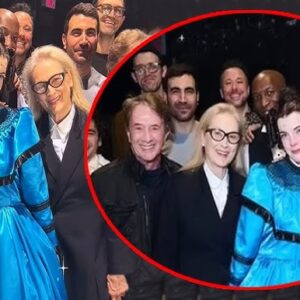I grew up on a sweet potato farm about ten miles outside town, where mornings began before sunrise and vacations meant the county fair. My parents have calloused hands, dirt under their nails, and more resilience than anyone I’ve ever met. I always thought that kind of hard work earned respect—until I left.
When I earned a scholarship to a prestigious private high school in the city, it felt like a dream. But on my first day, I walked into homeroom wearing jeans that still held the faint scent of the barn. A girl with a polished ponytail leaned to her friend and whispered, “Ew. Do you live on a farm or something?”
I didn’t respond. I just took my seat and told myself I was imagining things. But the comments kept coming. Questions about my shoes, jokes about tractors, disbelief that we didn’t have reliable Wi-Fi. I buried my roots and focused on blending in, keeping my head down and my grades up. But deep down, I hated hiding who I was.
At home, I wasn’t just some “farm girl.” I was Mele—someone who could fix a flat tire, corral chickens, and sell produce with confidence. My parents had built a life with their bare hands. Why was I ashamed of that?
Everything changed at a school fundraiser. We were all supposed to bring something from home to sell. While most students showed up with store-bought cookies or crafts made by someone else, I brought six homemade sweet potato pies—our family recipe. They sold out in twenty minutes.
That’s when Ms. Bell, our guidance counselor, pulled me aside. Before she could say much, someone interrupted us—someone I never expected to notice me.
It was Izan. Popular, poised, and the son of someone on the school board. He looked at the empty pie plates, then at me.
“Hey, Mele,” he said. “Did you really make those yourself?”
I nodded, unsure what he was getting at.
He smiled. “Think I could get one for my mom? She loves sweet potato anything.”
I blinked. “Sure. I’ll bring one Monday.”
Ms. Bell gave me a knowing look. “I was just telling her,” she said, “this pie—this story—is worth sharing.”
That night, I couldn’t stop thinking about all the times I’d tucked my identity away, assuming it made me smaller. But maybe it made me stronger.
On Monday, I didn’t just bring a pie—I brought flyers. I called it Mele’s Roots. “Farm-to-table pies, fresh every Friday. Ask about seasonal flavors.” I handed them out at lunch, expecting a few polite nods.
By the end of the day, I had twelve preorders and a DM asking if I catered birthday parties.
It took off from there. Teachers asked for mini pies. A girl offered me a designer jacket for three of them—I passed. The best moment? Izan sent me a photo of his mom holding a fork mid-bite, eyes wide. The caption said, “She says this is better than her sister’s—and that’s a big deal.”
I laughed. My dad asked what was so funny.
“Very good news,” I said. “We might need to scale up.”
That fall, every Thursday after homework, my parents and I baked together. I learned more about our family’s recipes—and our story—than I ever had. I began weaving those stories into schoolwork: essays, presentations, even casual conversations. People started to listen.
Even the ponytail girl asked for a recipe. I gave her a version she could manage without a wood-fired oven.
Senior year, our final project was about identity. I made a documentary. It featured my mom rinsing carrots in a bucket, my dad feeding scraps to the dogs, and me standing at our pie stall at the county fair beneath a hand-painted sign.
When they played it in front of the whole school, I was terrified. I stared at the floor the whole time. But when it ended, the applause was loud. A few people even stood.
Izan found me afterward and gave me a side hug. “Told you your story mattered.”
I smiled. “Took me a while to believe it.”
For a long time, I thought people wouldn’t respect me if they knew where I came from. Now I know: when you own your story, it becomes your power—not your shame.
I’m a farmer’s daughter. That doesn’t make me less. It makes me rooted.





